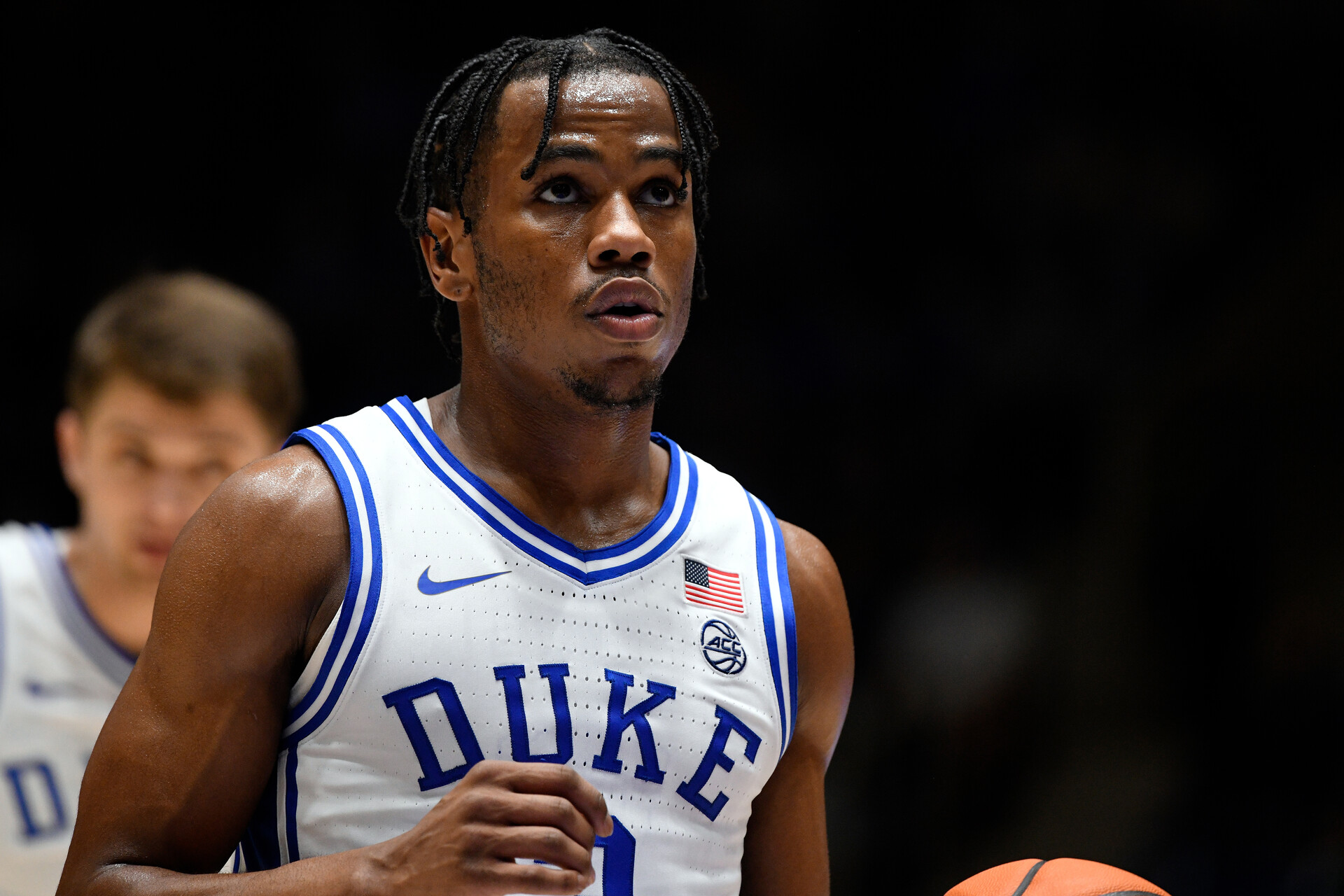If you judge a conference by its number of NCAA Tournament appearances, it’s pretty easy to make a case for the ACC being the best league in the land.
Over the past four seasons (2017-19, 2021), the ACC has garnered 32 bids to the Big Dance — four more than the Big Ten over the same period. And since 2015, three ACC schools (Duke in 2015, North Carolina in 2017, Virginia in 2019) have captured an NCAA championship.
Can this storied conference maintain its dominance, now that two of the sport’s blue bloods — North Carolina and Duke — are undergoing radical leadership changes (UNC coach Roy Williams retired last spring; Duke’s Mike Krzyzewski is retiring at season’s end)?
Props.com evaluates the college basketball conference championship odds for all 15 ACC programs, including Notre Dame. If the oddsmakers are correct, this could be a glorious farewell campaign for Coach K.
ACC odds via DraftKings and updated as of 5 p.m. ET Dec. 14. All SU and ATS record current as of date of publication.
PREVIOUS CONFERENCE PREVIEWS
Big Ten
ACC Basketball Odds
The Favorite
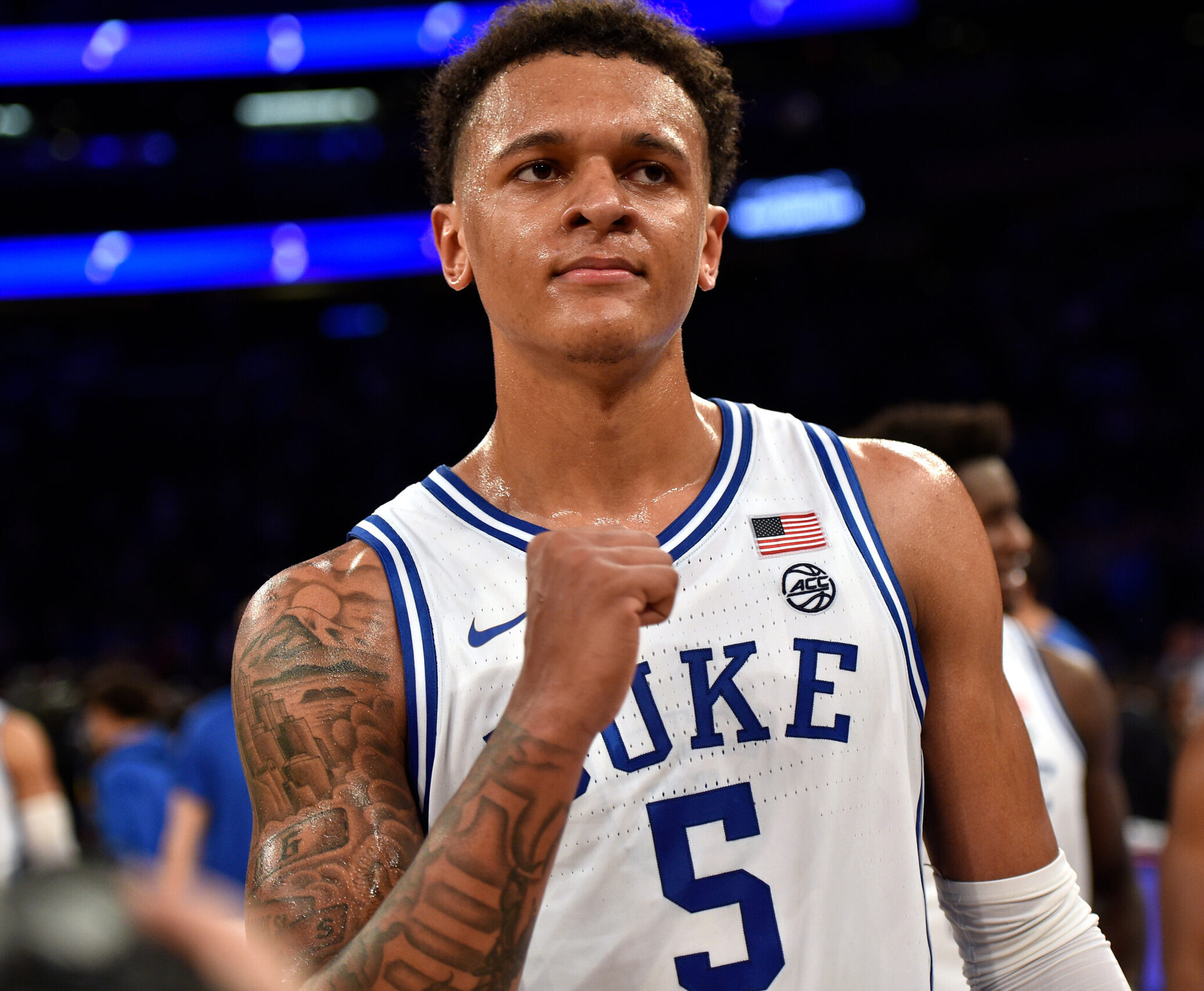
Duke +120 (Current record: 7-1 SU/3-3-2 ATS)
The Blue Devils, who tripped Kentucky and Gonzaga on neutral courts in November, have a great playmaking quintet in freshman Paolo Banchero (averaging 17.8 points/7.3 rebounds per game; potential No. 1 pick in next year’s NBA draft), Wendell Moore (17.8 points/6.5 rebounds), Mark Williams, Jeremy Roach, and freshman guard Trevor Keels.
This Duke squad plays faster (17th nationally in scoring offense, 83.1 points per game) and looks more imposing than last year’s team. But it’s not a vintage Coach K group in this regard: The Blue Devils aren’t oozing with supreme depth or veteran experience.
Such drawbacks might not preclude Duke from winning the ACC, but it could be a hindrance come NCAA Tournament time — especially if the Blue Devils encounter Baylor, Purdue, UCLA, Kansas, Alabama, or a rematch with Gonzaga.
The Challengers
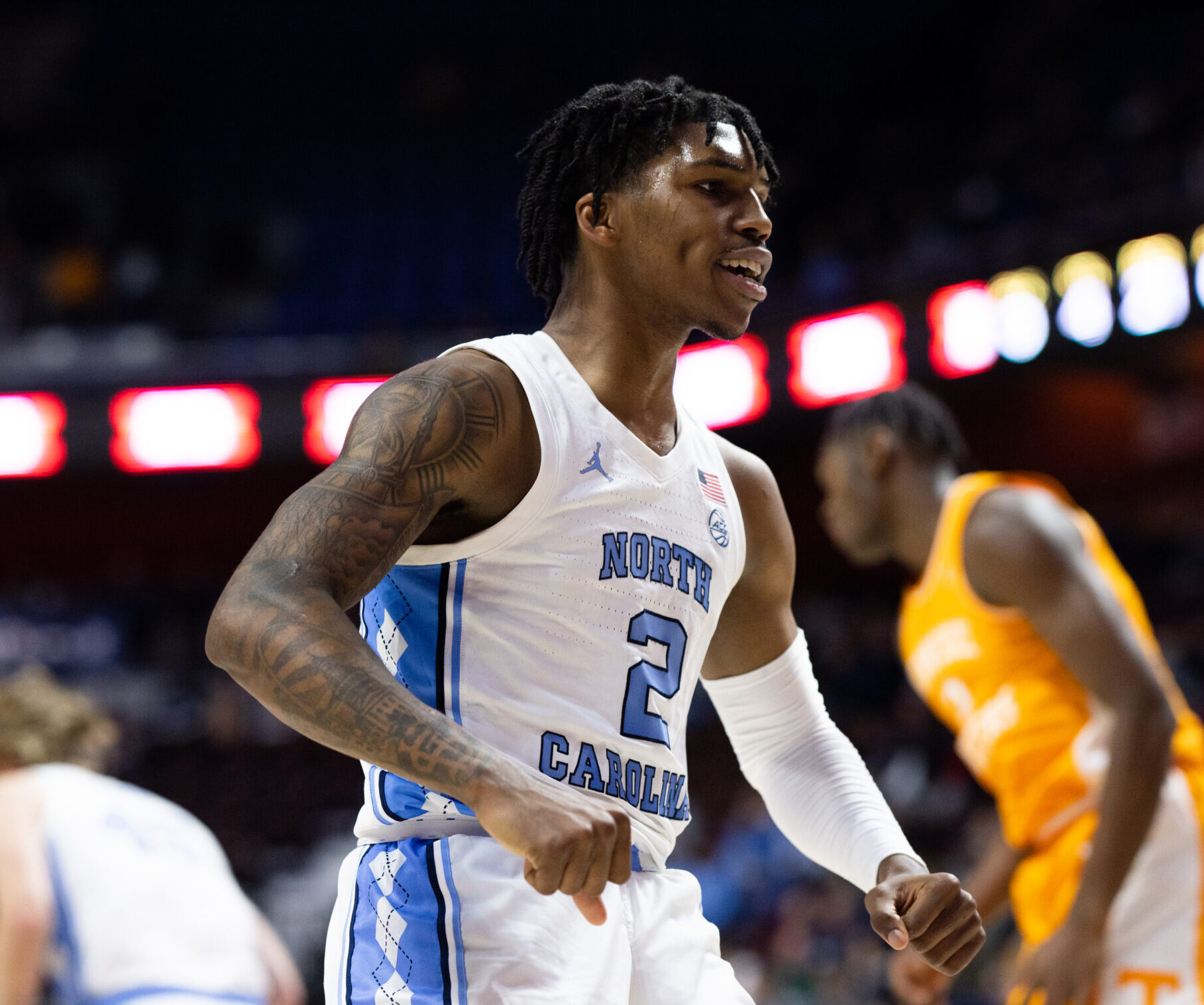
North Carolina +600 (7-2 SU/2-7 ATS)
Louisville +800 (6-3 SU/4-5 ATS)
Florida State +1,000 (5-4 SU/3-6 ATS)
Virginia Tech +1,000 (7-4 SU/7-4 ATS)
North Carolina has a top-three ACC ranking in every major offensive category: second in scoring offense (81.1 points per game), and third in field-goal percentage, three-point percentage, and free-throw percentage. The Tar Heels are only 1-2 against ranked opponents, but six of their seven victories have been double-digit routs.
Schedule-wise, North Carolina hosts Virginia, Louisville, and Syracuse but only returns the favor (among the trio) with a visit to Louisville.
The Cardinals deserve props for facing five consecutive power-conference teams in November/December. They defeated Mississippi State (72-58), Maryland (63-55), and NC State (73-68), but fell to Michigan State (73-64) and DePaul (62-55). That aside, Louisville doesn’t appear to have enough star power or depth to credibly challenge for the conference crown. Offense is also a concern: Among ACC teams, the Cardinals rank 14th in three-point proficiency (29.3 percent) and last in field-goal shooting (40.8 percent).
Florida State (0-1 in league play) has an exemplary ACC record over three-plus years (40-14). But something seems amiss with this year’s Seminoles, who failed to score more than 65 points in losses to Florida, No. 2 Purdue, Syracuse, and South Carolina. Keep in mind: Syracuse has a defensive rating of 329th overall … out of 358 schools.
Virginia Tech got pummeled 80-61 by Wake Forest in its ACC opener, part of an ongoing 2-4 SU and ATS slump. Now for the good news: The Hokies own top-four conference rankings in three-pointers made per game (8.6) and three-point proficiency (39.3 percent). They’ll need to maintain those stats — and play better defense than they did against Wake Forest — to make a legit run for the conference title.
The Dark Horses
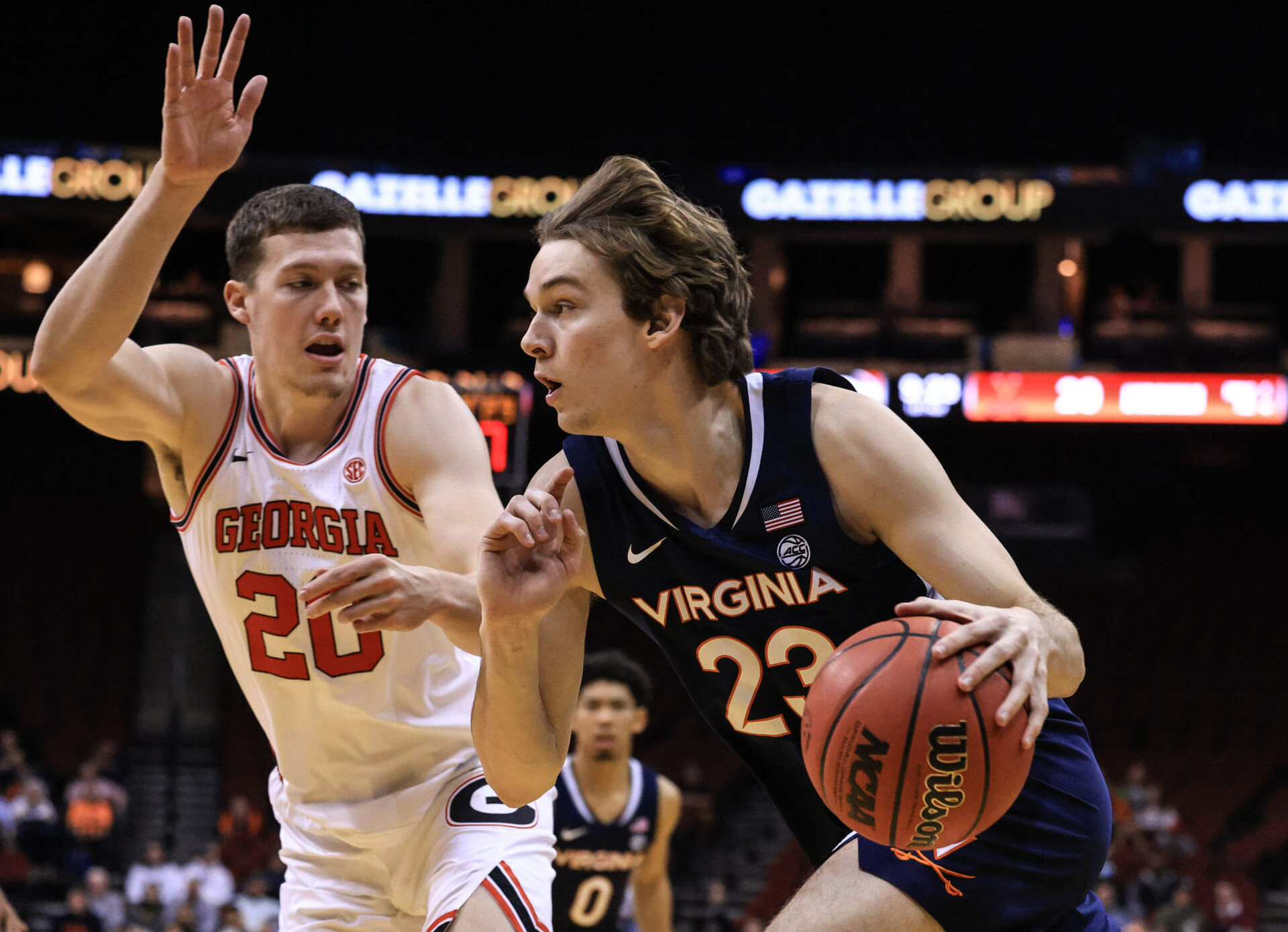
Virginia +1,400 (6-4 SU/3-7 ATS)
Syracuse +2,000 (5-5 SU/4-6 ATS)
It’s easy to forget Virginia (1-0 in ACC) claimed last year’s regular-season title (13-4) but never got a genuine opportunity to win the conference tournament because of COVID-protocol breakdowns. This year, however, the Cavaliers rank 11th in steals per game (5.7), 12th in field-goal proficiency (43.3 percent), 13th in three-point shooting (30.3 percent), 14th in scoring offense (61.0 points per game), and 14th in total rebounds (32.3 per game). That’s not an ideal recipe for repeating as league champs.
By one particular measure, Syracuse has played the nation’s 22nd-toughest schedule to this point. That seems low, considering the Orange recently encountered seven consecutive brand-name opponents: VCU (67-55 loss), Arizona State (92-84 victory), Auburn (89-68 loss), Indiana (112-110 double-overtime win), Florida State (63-60 loss), No. 6 Villanova (67-53 loss), and Georgetown (79-75 loss).
Will this November/December grind pay off down the line for Jim Boheim’s crew? Perhaps. Then again, the Orange face a gauntlet from Jan. 22-Feb.28 that includes two games against Duke, as well as trips to Pitt, North Carolina State, Boston College, Virginia Tech, Notre Dame, and North Carolina — plus a home date with Louisville.
The Long Shots
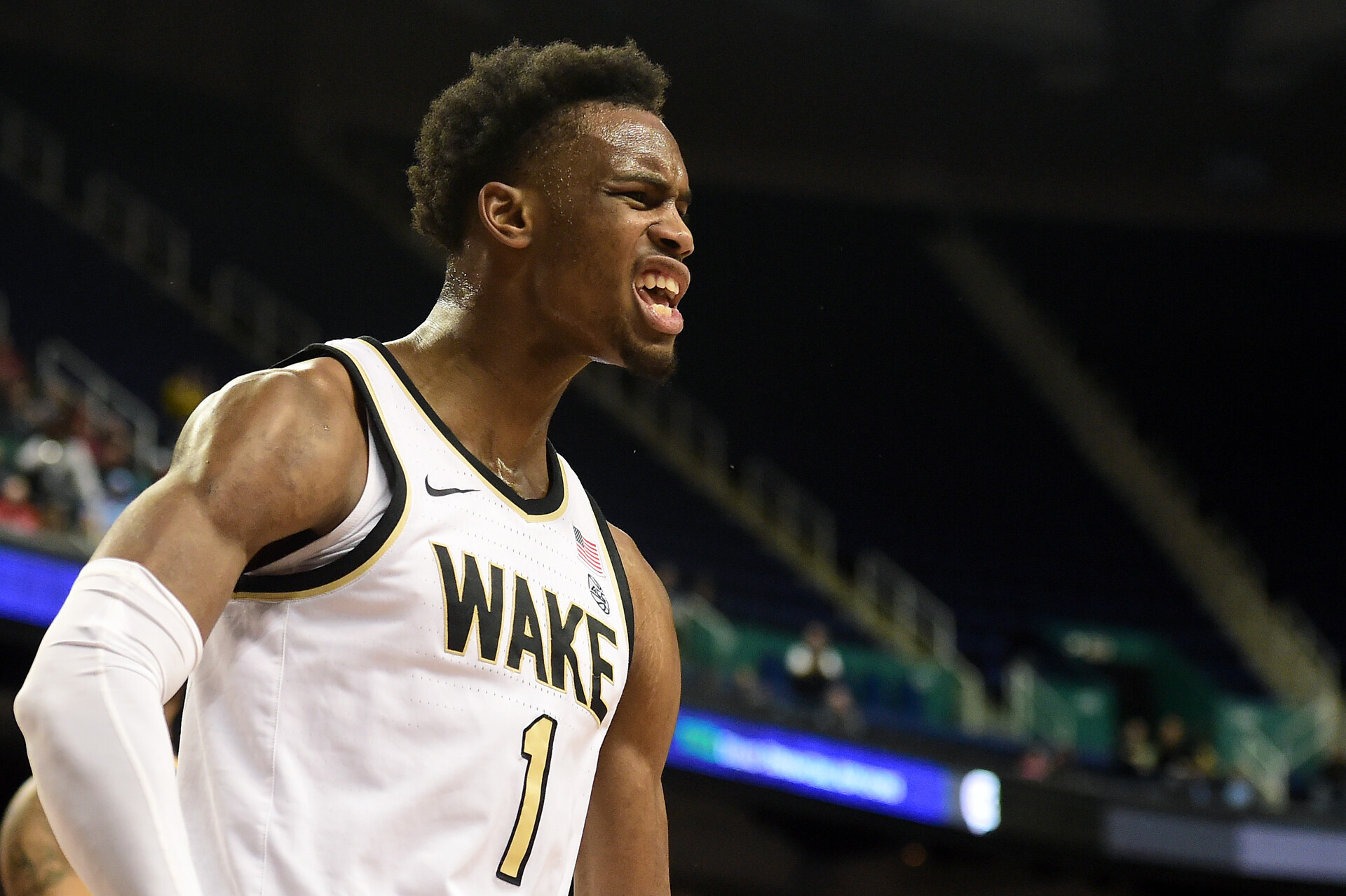
Wake Forest +3,500 (9-1 SU/7-3 ATS)
Notre Dame +3,500 (4-4 SU/2-6 ATS)
Georgia Tech +4,000 (5-4 SU/2-7 ATS)
North Carolina State +4,000 (7-3 SU/2-8 ATS)
Clemson +5,000 (6-4 SU/5-4-1 ATS)
Miami +6,000 (8-3 SU/4-7 ATS)
Pittsburgh +10,000 (3-7 SU/5-5 ATS)
Boston College +20,000 (6-5 SU/5-6 ATS)
Wake Forest has the ACC’s No. 2 scoring offense, the league’s most overall wins (nine), and the conference’s best ATS mark, including that thorough 80-61 road rout of Virginia Tech as an 8.5-point favorite. In time, the Demon Deacons might warrant a promotion to the “dark horses” category — if they survive a mid-January to mid-February stretch when they play six of nine league games on the road.
Notre Dame has suffered single-digit losses to Saint Mary’s, Texas A&M, and Illinois, then upended No. 10 Kentucky last Saturday night. In other words, this has the look of a typical Fighting Irish season (several narrow head-scratching defeats and the occasional upset of a blueblood program).
Three straight power-conference losses to Wisconsin (70-66), North Carolina (79-62), and LSU (69-53) have dulled the hue of last season’s ACC tourney title for Georgia Tech. However, after Saturday’s neutral-site bout with No. 10 USC, the Yellow Jackets have just one currently ranked foe on their remaining schedule (No. 2 Duke on Jan. 4).
Last Sunday, NC State squandered a double-digit lead against then-top-ranked Purdue, losing 82-72 in overtime. On the plus side, other than a trip to Duke in mid-January, the Wolfpack might not encounter another squad of Purdue’s caliber all season.
Clemson definitely will have a chance to prove its worth, as it hosts North Carolina, Duke, and Florida State at Littlejohn Coliseum this year. That’s three résumé-building opportunities for a Tigers team that won six of its final seven ACC games last regular season.
Miami (1-0 in league play) has a 16-41 ACC record over the last three full seasons. Will new Hurricanes athletic director Dan Radakovich (formerly Clemson’s AD) be making another high-profile hire next spring (after signed Oregon’s Mario Cristobal last week to take over the football program last week)?
Pittsburgh’s ACC-title hopes likely ended with the season-opening 78-63 home loss to The Citadel. Or was it subsequent deflating defeats — at home — to Maryland-Baltimore County and Monmouth?
Boston College’s resounding 73-57 victory over Notre Dame on Dec. 3 must have been a sweet response to those forecasting doom and gloom for the Eagles this season. Just try not to pay too much attention to B.C.’s listless home loss to Albany on Monday.

